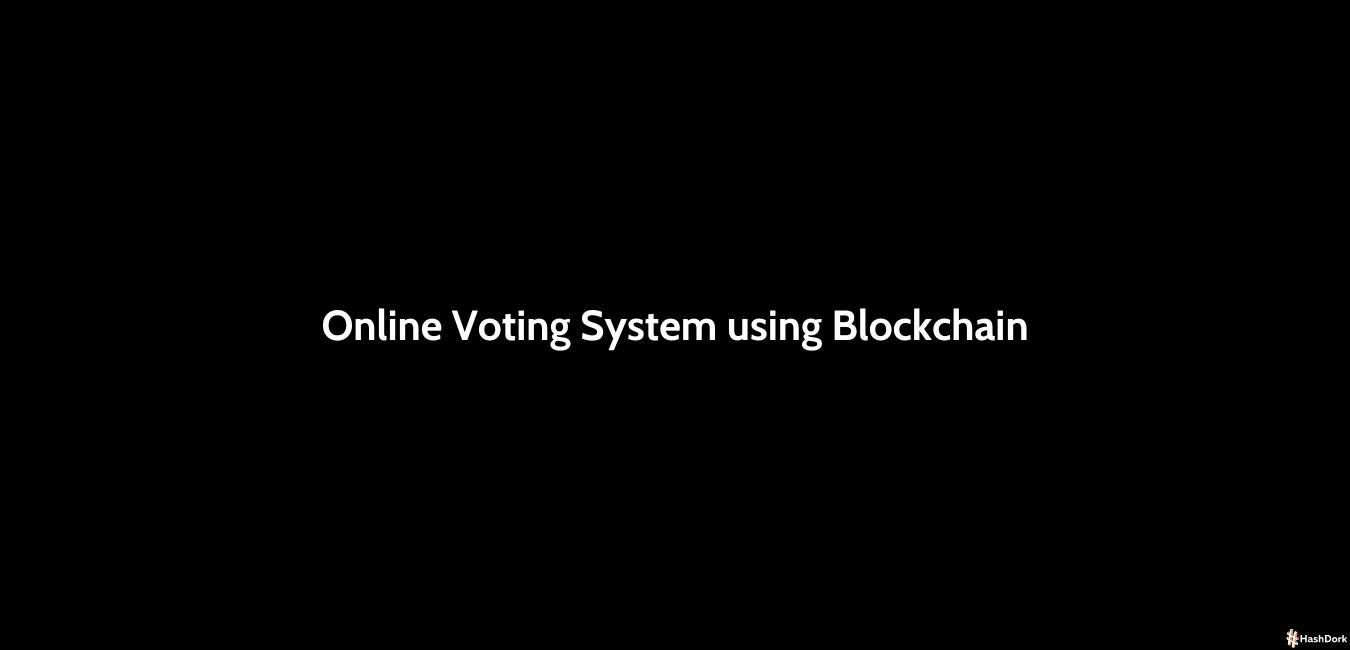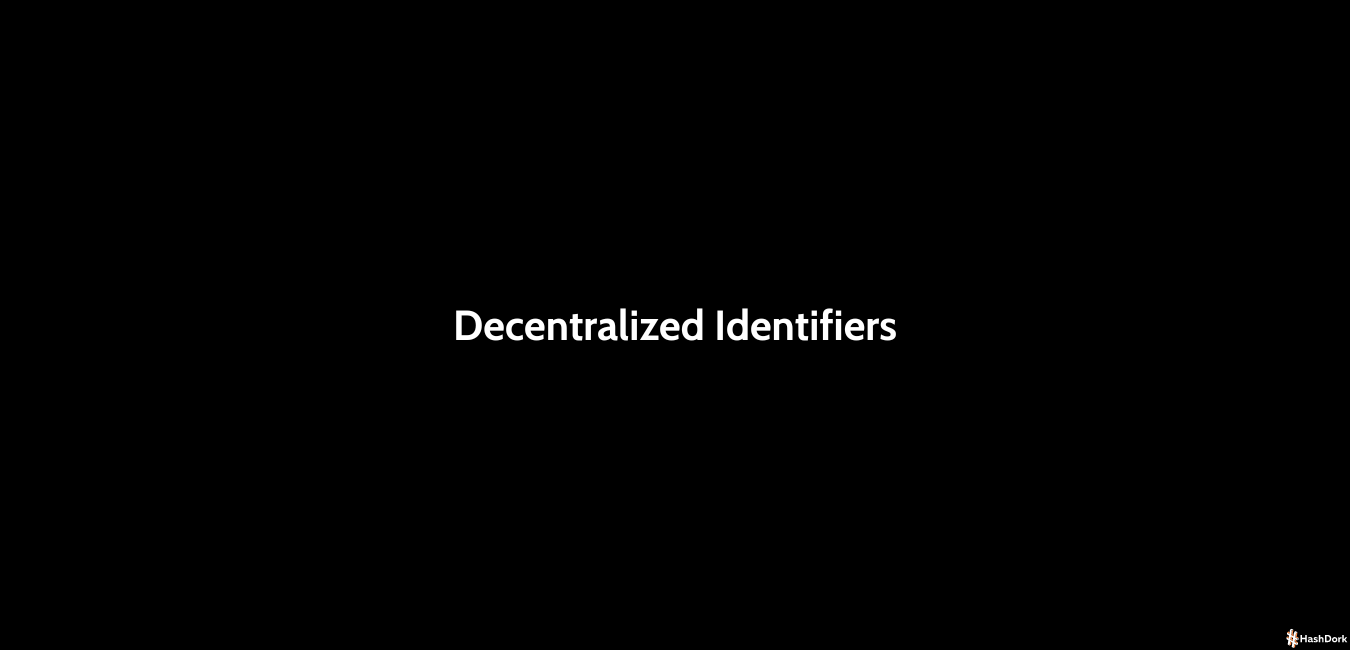Traditional voting techniques have considerable hurdles in today’s interconnected society, such as security risks and transparency issues. Implementing an online voting system based on blockchain technology appears to be a possible solution to these concerns.
But, how would that work?
Can a blockchain assure tamper-resistant data and enhance voter confidence by leveraging blockchain’s decentralized nature? As society navigates the intricacies of modern times, such a system could become necessary to stimulate democratic participation, streamline voting procedures, and ensure election integrity.
Let’s explore it more.
A Little Background
The concept of employing blockchain technology for voting systems arose in response to the mounting issues that traditional voting techniques encountered. Concerns about the security, transparency, and integrity of elections grew as technology evolved and the world became more digitally interconnected.
This encouraged scholars and engineers to consider novel ideas that could transform the political process.
The blockchain concept, first described in 2008 by an anonymous individual or group under the pseudonym Satoshi Nakamoto, gained popularity with the introduction of Bitcoin in 2009. Blockchain is simply a decentralized, distributed ledger that securely, tamper-proof, and transparently records transactions.
Its architecture eliminates the need for middlemen and central authorities, making it an excellent choice for applications that require trust and immutability.
Bitcoin’s success revealed the power of blockchain in financial transactions, prompting forward-thinking individuals to examine its application in other industries, such as voting. Blockchain’s basic concepts, including decentralization, data integrity, and consensus procedures, offered a viable answer to the long-standing issues confronting voting systems.
As experts and technology enthusiasts began to investigate the possibility of a blockchain-based voting system, it gained traction. Several academic papers and research articles began to emerge, analyzing the possible benefits and obstacles of putting such a system in place.
As a result, the concept of online voting utilizing blockchain evolved from an idea to a possible route for revolutionizing how societies conduct elections.
The Benefits of Blockchain-Based Voting Systems
One of the primary benefits of a blockchain-based online voting system is its inherent security and transparency. The decentralized structure of blockchain means that votes are recorded in a tamper-proof and immutable ledger, greatly decreasing the possibility of hacking or tampering.
This high level of security promotes better voter turnout and engagement by fostering trust among voters, electoral authorities, and other stakeholders.
Various Approaches for Using Blockchain to Implement Online Voting
Voting System Consensus Mechanisms on the Blockchain
Choosing the best consensus method is one of the most important technical aspects of implementing online voting on the blockchain. The consensus algorithm selected affects how votes are confirmed and recorded on the blockchain.
Two frequently investigated options are proof of work (PoW) and proof of stake (PoS).
Proof of Work (PoW)
Consider Proof of Work (PoW) to be a puzzle-solving competition. Participants (miners) compete to solve complex mathematical riddles using their computers in this game. The first miner to find the proper solution is rewarded for their efforts by adding a new block of transactions to the blockchain.
Solving these puzzles needs a significant amount of processing power, making it a difficult undertaking.
PoW’s security stems from the fact that miners must employ real-world resources to play the puzzle-solving game, such as energy and sophisticated computers. Once a block is uploaded to the blockchain, it becomes incredibly impossible to change or tamper with the information in that block.
This is because changing anything in the block would necessitate redoing all of the puzzle-solving work for all of the succeeding blocks, which is nearly impossible.
Proof of Work (PoW) for Voting: Voters in a PoW-based online voting system could take part in the puzzle-solving process. Each vote could be treated as a puzzle, with voters (or their computers) competing to solve them.
The winner would be the first legitimate vote to be solved and added to the blockchain. However, PoW could not be the greatest choice for voting systems because it is sluggish, energy-intensive, and does not provide the needed scalability for a high number of voters.
Proof of Stake (PoS)
Let us now discuss Proof of Stake (PoS). Consider PoS to be a voting system in which participants (validators) have voting power proportional to the number of tokens they own. Validators are chosen at random in this system to build new blocks and validate transactions.
The more tokens a validator “stakes” or locks up as collateral, the more likely it is that they will be chosen to construct a block.
PoS, unlike PoW, does not require competitive puzzle-solving. Validators are instead selected in a more predictable and deterministic manner, based on the number of tokens they are willing to “bet” on the system.
Validators are compelled to act honestly since they risk losing their staked tokens if they attempt to cheat or manipulate the system.
Proof of Stake (PoS) for Voting: In general, PoS is better suited for online voting systems. Voters would not be involved in any puzzle-solving in a PoS-based voting system. Instead, validators would be chosen at random based on the number of tokens they possess and stake.
Validators would next build and add to the blockchain blocks containing the recorded votes.
This method would be faster, less energy-intensive, and more scalable for a larger number of votes. Both PoW and PoS have advantages and disadvantages, and the choice of consensus mechanism is determined by the online voting system’s specific objectives and aims.
Researchers and developers are constantly looking for new approaches and enhancements to use blockchain technology to construct secure, efficient, and trustworthy online voting systems.
Privacy protection and identity verification
Online voting requires an identity verification mechanism that is both trustworthy and secure. Cryptographic methods are frequently used in blockchain-based voting systems to offer pseudonymous yet verifiable identities.
Homomorphic encryption and zero-knowledge proofs are potential techniques that enable voters to demonstrate their eligibility without disclosing personal information.
Homomorphic Encryption
Homomorphic encryption is a strong cryptographic technology that allows computations on encrypted data to be conducted without disclosing the original data’s content. This means that voters can encrypt their ballots before submitting them to the blockchain in the context of online voting.
The ballots are secure and secret once encrypted, guaranteeing that the actual vote remains private.
When it comes time to count the votes, the encrypted ballots can be decrypted and counted without revealing individual voting preferences.
Because the decryption process takes place in a secure and regulated environment, the identity of the voter and their precise vote remain private, eliminating the possibility of vote manipulation or coercion.
ZKPs (Zero-Knowledge Proofs)
Another cryptographic technique used in blockchain-based voting systems to authenticate the legitimacy of a statement without revealing any specific information about the statement itself is zero-knowledge proof.
In the context of voting, ZKPs enable voters to demonstrate their eligibility without revealing personal information such as their identity or specific credentials.
A voter, for example, can use a Zero-Knowledge Proof to prove that they are a registered voter without exposing their name, address, or any other sensitive information. This documentation verifies the voter’s eligibility to vote without jeopardizing their privacy.
By employing ZKPs, voters can engage in the voting process with confidence, knowing that their identity is secured and their votes are securely counted.
In blockchain-based online voting systems, the combination of Homomorphic encryption and Zero-Knowledge Proofs provides a strong framework for privacy protection and identity verification.
Voters can vote anonymously, and their names are kept hidden from prying eyes. Simultaneously, election organizers can verify voters’ eligibility without accessing any sensitive personal information, assuring the democratic process’s integrity and legitimacy.
These cryptographic techniques are critical in instilling trust and confidence in online voting systems, making them more resistant to potential security threats and ensuring each participant’s anonymity.
Smart Contracts for Voting Rules
The regulations of the voting process can be defined via smart contracts, self-executing code installed on the blockchain. These contracts would have the ability to carry out voting procedures such as starting and ending voting periods, tabulating votes, and announcing victors automatically.
Online voting systems can be made more autonomous and transparent by using smart contracts, which eliminates the need for human intervention and potential manipulation.
Voting Procedures Automation
Smart contracts make it possible to automate certain voting procedures. Once installed on the blockchain, smart contracts can specify and enforce voting rules. They can automatically open and close voting periods, ensuring that voting occurs only during the specified term.
Furthermore, smart contracts can authenticate voter eligibility, ensuring that only registered and authorized participants can vote.
Transparent and Tamper-Resistant Records
The implementation of smart contracts in online voting systems ensures the voting records’ transparency and immutability. Each vote cast is recorded as a transaction on the blockchain and securely kept.
Once a vote is added to the blockchain, it cannot be changed or removed, resulting in a transparent and auditable voting history. This transparency can foster trust among voters, candidates, and other stakeholders by allowing them to independently verify the integrity of the election.
Eliminating Intermediaries
Smart contracts function decentralized, with no need for intermediaries or central authorities. This direct peer-to-peer approach simplifies the voting process by lowering administrative costs and potential sources of failure or manipulation.
Voters can engage directly with the smart contract, and the contract’s rules ensure that the voting process is fair and safe.
Hybrid Scalability Solutions
In comparison to conventional centralized systems, blockchain could be slower and less scalable because of its inherent immutability and consensus methods. Hybrid solutions are being investigated to overcome this restriction.
Understanding Hybrid Scalability
The goal of hybrid scalability solutions is to combine the benefits of blockchain technology with off-chain or subsidiary-chain protocols to increase transaction throughput while maintaining security and transparency.
These solutions attempt to find a balance between the blockchain’s decentralized character and the need for quicker processing rates, making them more suitable for large-scale applications such as online voting systems.
Off-Chain Voting Protocols
The voting process can be conducted off-chain in hybrid scalability systems. Off-chain voting systems entail members voting without explicitly recording each vote on the main blockchain.
Votes are instead collected and processed over a separate network or protocol that can manage a bigger volume of operations more quickly.
In this situation, rather than recording each vote, the blockchain serves as the final and authoritative source for notifying the results. This method lowers the computational strain on the main blockchain, allowing for greater scalability.
Subsidiary Chains for Voting
Another hybrid strategy is to create subsidiary chains dedicated entirely to the voting process. These subsidiary chains are linked to the main blockchain but use unique consensus techniques and rules suited for voting transactions.
The primary blockchain’s scalability is improved by segregating voting-related activity onto subsidiary chains. The subsidiary chains can manage the voting traffic more efficiently, resulting in faster processing times for the entire voting process.
Anchoring Results on the Main Blockchain
Regardless of the hybrid scalability option used, the voting process’s ultimate results are safely anchored on the main blockchain. This assures that the election results are overall honest and transparent.
The subsidiary chains, or off-chain protocols, are in charge of swiftly processing votes and counting results, while the main blockchain acts as a secure and unchangeable ledger for recording the final election results.
This combination preserves the benefits of blockchain’s security and decentralization while addressing scalability issues.
Voter Education and Usability
Blockchain-based online voting needs to address user education and usability issues.
The ordinary voter can not fully comprehend blockchain technology.
Therefore, creating user-friendly user interfaces and offering instructional materials become crucial. Additionally, creating user-friendly web interfaces or mobile applications can improve accessibility and promote wider voter participation.
Independent Auditing and Transparency
The transparency and immutability of blockchain technology can assist assure the validity of election outcomes. Independent auditors can examine the blockchain’s transaction history to confirm the fairness of the voting process.
Voters, candidates, and regulatory bodies gain additional trust as a result, increasing their level of assurance in the voting system’s impartiality.
Conclusion: Embracing Blockchain for the Future of Democracy
Traditional voting techniques have considerable hurdles in today’s networked society, including security risks and transparency issues. Implementing a blockchain-based online voting system offers a viable solution to these concerns.
By using the decentralized and immutable characteristics of blockchain, such a system might ensure tamper-resistant data and boost voter confidence, so encouraging democratic participation, expediting voting procedures, and ensuring election integrity.
As society grapples with the challenges of the modern day, blockchain-based online voting systems provide a compelling road forward.
We can create a future where democratic participation is increased, trust in electoral processes is strengthened, and the fundamental ideals of democracy are upheld with integrity and transparency by embracing the opportunities given by blockchain technology.
The path to adopting blockchain-based voting systems is still underway, and more study and collaboration will be required to realize the full potential of this disruptive technology in defining the future of democracy.





Leave a Reply